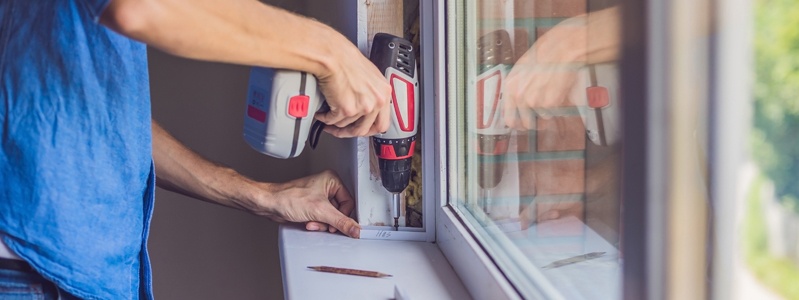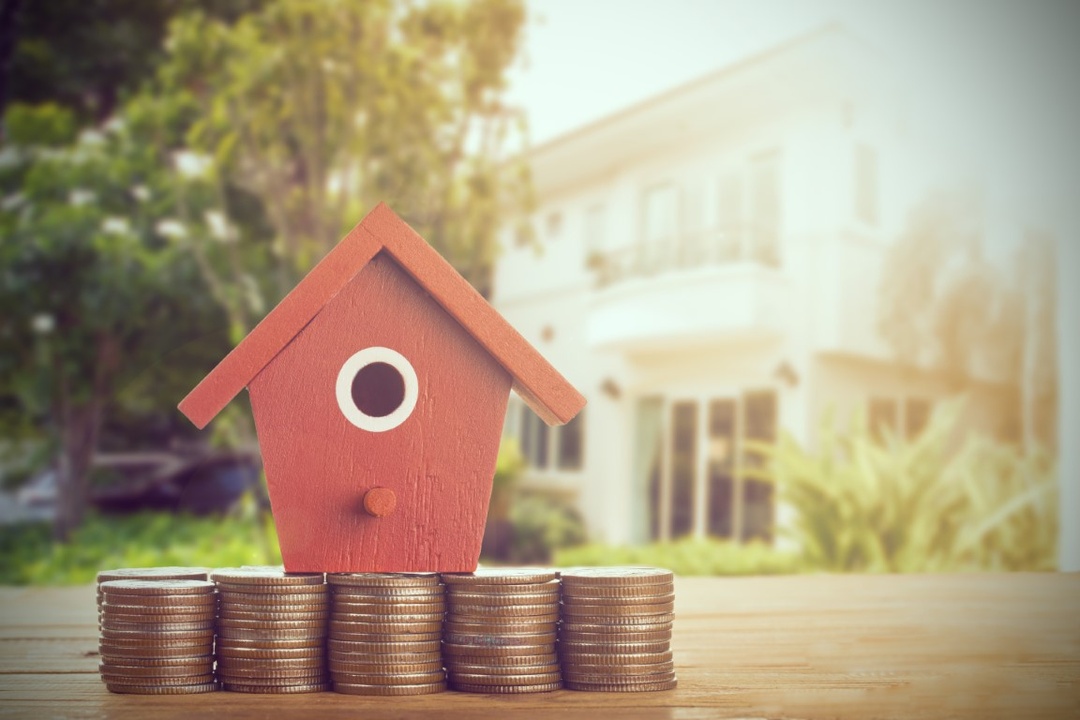
Selling your house is a time-consuming process. If you're planning to make significant repairs to raise the value of your home, it could quickly get expensive. But do you have to make many upgrades to get buyers interested? And which repairs are essential to make, if they need fixing at all?
To help you decide what should get repaired and which of your home's features don't need addressing at all, check out this list before you go overboard on projects.
Things to Consider Before Making Your Fix List
How much value do you think your home has?
Making repairs on a home can increase its value by an average of 66.5%, based on the most popular remodeling projects.
But some sellers will invest their valuable time and money to upgrade the home, only to find out their repairs and updates were a waste of resources.
It's already fairly pricey to go through the selling process, so there's no need to add extra costs if it won’t net you a return on your investment. Here are some things to consider while making your fix-list.

Asking a Local Agent
Before spending your money and precious time fixing up your home, ask your real estate agent about the changes you're considering. Because every market is different, upgrades that could help sell a home in one neighborhood could be entirely different from another.
Because agents know what buyers are looking for in a particular market, they know what features and renovations buyers could be interested in paying more for and which projects would be a waste of time.
Will You Recover Your Remodeling Cost?
When you invest in home upgrades and renovations, you typically only get back about 56% of what you spent on those major fixes. So unless the fix is necessary, you may expect to only recover some of your renovation costs.
If your agent isn’t sure whether the renovation is a good idea or not, have them calculate the Return on Investment (ROI) to evaluate whether your major fix will make financial sense.
Avoid Vanity Fixes
Sellers tend to say they want to fix things up because they hope their work will help the home sell for more money, but that's often not the actual reasoning behind it. The sellers who balk at their agent who advise not to do an upgrade usually do so for a few reasons:
* "I've been wanting to fix that, anyway." Every homeowner has a list of repairs, upgrades, and major renovations that they want to do to their home. But if that list remains undone when you're selling your home, you can feel like those fixes are necessary to improve the quality of the house. However, if your agent advises you to skip a repair on the list, or all of them, it's best to take in their experience and not attempt to check off the things you wish you would have done.
* "I don't want buyers to see my home in this condition." Pride of ownership can often cause sellers to want to fix every flaw they can think of before listing their house. After all, when you think about how many people will be walking through your home, it can make you feel insecure about how everything looks from an outsider's perspective. Remember, though, that it's not worth spending thousands of dollars to impress people who will only be walking through for a 15-minute showing.
* "Fixes and upgrades will detract from the property flaws." Homeowners who know of a significant but unfixable flaw in their home tend to want to upgrade every other aspect of the house to detract from the defect. Maybe it's a lack of parking space, a powerline directly on your property, or even a small backyard. However, that major flaw will always be there regardless, so it's not always worth spending thousands to detract from that one flaw.

What Not to Fix When Selling a House
The process of selling a home can be a massive undertaking with a lot of time and money involved. But before listing your house on the real estate market, there might be several things you’ll feel you need to upgrade or fix to attract buyers. Although it's tempting to make these changes, there are quite a few things that you shouldn't bother fixing.
Major Cosmetic Issues
If a home needs major repairs, buyers may see unnecessary cosmetic repairs as a red flag. Whether the damage includes a minor crack in the flooring, some scratches on the baseboards, or outdated finishes, it's up to you to decide whether the fixes are necessary, or whether you’re just trying to mask a larger problem.
Most cosmetic fixes require time-consuming improvements that can get expensive. So, rather than investing in an upgrade, it's more worthwhile to lower your price accordingly or put that money toward fixing the major issue instead. However, it is relatively easy to make minor fixes like replacing a cracked tile, so those are fine if you have the tools on hand and don't need to spend too much extra money.
Partial Kitchen Upgrades
Unless you're going to remodel the entire kitchen, don't bother making a big fix. A partial remodel will never look as good, and it may look like you're desperately trying to hide a flaw. So don't update the countertop or the cabinets because brand-new features won't match the older ones. Instead, go for fixes that give you a better return like a midrange kitchen remodel with an average resale value of $43,364.
Temporary Solutions
If you notice a minor issue within your home, keep in mind that it could be a waste of time and money to fix it. Even if it's tempting to improve, don't bother making a temporary repair. Most likely, the potential buyers will notice a cheap fix that won't last long. So it's best not to mess with anything that doesn't need an immediate repair.

Minor Electrical Issues
When it comes to dangerous electrical issues like exposed wires, sparking outlets, or broken light fixtures, go ahead and make the repairs. But for minor electrical problems like a wobbly socket or non-functioning light switch, it’s not worth the fix when the task is minor and the next homeowner can repair it themselves. Although home inspectors check the electrical wiring, they don't usually report more minor or cosmetic issues because they aren't a cause of immediate concern.
Cracks In the Driveway or Walkway
While it's a good idea to add to your curb appeal to increase your home's resale value, remember that this doesn't necessarily include fixing every crack on the driveway or walkway. A hairline crack in the cement isn't going to deter a potential home buyer. They may not even notice such a minor imperfection!
Building Code Issues
Building code issues in older homes can undoubtedly cause problems, but there's no reason to invest a lot of money in getting your home up to code standards before it’s been assessed by a professional. That's a job for the home inspectors, who will address all building code concerns and any damage in their inspection reports. Plus, your do-it-yourself project may be against specific codes, so it's best to leave these types of repairs for after the inspection unless you involve a professional.
Removable Items
There's no reason to replace what you can easily remove, such as outdated window valances. Buying new window treatments may be easy, but it adds up quickly — the average cost of window treatments is $767. So don't bear the extra cost when the new buyer may replace them anyway.

Older Appliances
Don't waste money buying new appliances to replace outdated models. Instead, save your money by purchasing used appliances in good condition. These still work but typically cost less, which will save you money. So check out online marketplaces to see what other people are selling. Usually, it's a better deal than spending much more on something brand new.
According to a study by Housing Economics, the average cost for new homeowners buying brand new appliances is around $3,094. The biggest costs are larger appliances like refrigerators, washing machines, and dryers. Whereas existing homeowners typically spend $1,889 for appliances that they need.
So why spend thousands of dollars when used appliances in good condition will work just as well? Calculating the difference of these averages shows that you can save up to $1,205.
Your Home’s Current Style for Trendy Upgrades
When staging and highlighting your home's best visual features, don't get carried away making trendy but permanent fixes to the home. Remember that home trends come and go, but a classic look is forever.
So, avoid fixing up your property to match social media's latest interior design trends. You’re better off allowing the buyer to make these sorts of changes according to their tastes and preferences.
Flooring
If your flooring isn't significantly damaged, upgrading it may not be money well spent. The average cost of a flooring installation is about $2,999 for 500 square feet. However, if you're swapping out carpet for a hard surface, it could make sense. Typically, the ROI for replacing hardwood floors is up to 70%. So it depends on your current flooring and if the fix would make financial sense for your home after pricing out the job.

The Bathroom
Similarly as with the kitchen, if your bathroom doesn't have any major issues, it's not always worth upgrading. Especially if it's only one minor thing, like a leaky faucet that the buyer can always replace later. If you upgrade, the new faucet or other fixture will look like an obvious partial renovation that won't match the rest of the bathroom. However, a full bathroom upgrade is certainly worth it because everything will look cohesive and more intentional.
Home Features at the Last Minute
If potential buyers are planning to view your home within the next few weeks, don't start a repair that you may not be able to address in time adequately. What if you get started and run into another issue making the same repair? Most likely, you're not going to want to spend the money or race against time trying to make last-minute repairs. You also don’t want to risk having half-finished repairs visible when buyers are viewing the house.
The Walls Just for the Sake of It
Paint colors can also be trendy, sometimes with incredibly bold and bright colors that can be jarring for many people. Before you are tempted by watching others paint their homes with bright or super dark colors on social media, keep in mind that these trends are fleeting.
You can always redo interior painting, just stick with the neutral base that will be appealing to a wide array of buyers.
Your Home to Compete With the Neighbors
We all know the expression, "Keeping up with the Joneses," but it's never a good idea to spend a great deal of money competing with your neighbor. Not only is it costly, but there’s no guarantee that these changes will increase the sale price of your home..
If your house is in real need of some pizazz, you can find simple ways to spruce up your home that will give it a refresh for viewings.

What You Should Fix When Selling a House
While not every repair needs immediate fixing, there are some that will impact the sales price of your home. Some buyers may not make an offer until certain repairs are done, like foundation damage, a leaky roof, mold and water damage, or other significant issues. More often than not, major repairs like these will need to be made during the home negotiation process either way, so it can be smart to get ahead of it, and fetch a higher price for your home.
But, not everything needs upgrading. So, before you break the bank to fix multiple issues tirelessly, check out which problems need repairing much more.
Damage to the Foundation
When the foundation is severely damaged, it threatens the structural integrity of the entire home. Because of this, it can be challenging to sell.
Although filling in a single crack can be expensive, it will be worth the investment if it requires a significant repair. The foundation of a home must be structurally sound, so this is a fix that you will want to make before potential buyers have a look.
Major Electrical Issues
Although you can skip over minor electrical issues, you shouldn't ignore major electrical problems. If you have faulty wiring, an outdated circuit breaker, broken light fixtures, or sparking outlets, then it's cause for a fix.
Electrical fires are responsible for 51,000 house fires every year, so invest in making those repairs because it will be well worth it.
Major Plumbing Issues
If your home has serious plumbing issues, like water pipes bursting or sump pump failure, these will need addressing right away. When these problems are left unmaintained, they can result in severe water damage later. So get a professional plumber to fix the plumbing so the issue won't scare off potential buyers.

Mold Damage
Not only can mold damage cause serious foundation issues, but it can also cause life-threatening illnesses in people and animals. In addition, a case of severe mold can break down wood, even enough to possibly make the home collapse.
Toxic mold can cause serious respiratory infections from allergies to asthma. It can also cause digestive problems, extreme fatigue, and painful inflammation of the joints. So this is an issue that you'll want a professional to address as soon as possible.
Water Damage
Significant water damage caused by plumbing issues can lead to mold and dry rot, which vary in repair costs. Depending on the water source, the size of the damaged area, and how long the damage has been there, the repair cost can vary between $1,100 to $4,500. Although it’s an expensive repair cost, water damage is something you should fix before selling your home.
An Old Roof
An older roof can decrease your home's value and cause other serious issues like leaking, poor ventilation, and even high energy bills. The national average cost of replacing a roof is $8,500, but it will make an excellent return on investment with the benefits that installing a new roof can bring. If your roof needs repair, it's better to invest in a new one before you sell.
Poor Grading and Drainage
The grading around a house refers to the ground level surrounding the structure, determining where rainwater will go. There are two types of grading, each with its implications. Positive grading slopes away from the house and directs rainwater away from the foundation. In contrast, negative grading slopes towards the house and allows the rainwater to flow towards the foundation. You want to aim for positive grading for the best longevity for your property.
You can get negative grading fixed by a professional for around $1,995, or you can remedy this issue yourself by shoveling soil towards your home. You can even bring in dirt from another area of your property, but avoid covering your existing siding. This can bring in termites, so use topsoil or grading soil that keeps rainwater at grade level until it can flow away from your house.

Old, Worn-Out Carpeting
Carpet that is only a few years old or still in fair condition can stay, but if the carpeting in your home has water damage or reeks of odors, it's time to replace it. After all, you don't want an old, damaged carpet to turn away potential buyers who may not want to bother replacing it themselves.
Damaged Tiles
Although we've mentioned tiles in the sections above for features that you don't have to fix, it is a good idea to replace tiles if they are significantly damaged. It will be an excellent investment to replace the tile if it's much more than a hairline crack.
Heating, Ventilation, and Air-Conditioning Issues
If your heating, ventilation, and air conditioning (HVAC) unit isn't working correctly, you must get a professional to repair it. Don't feel the need to buy a brand new unit unless the one you have is completely damaged, though. A new HVAC unit can cost anywhere between $7,000 to $10,000, so getting it repaired over completely replacing the old unit is a wise decision.
As a home seller, you may be familiar with all of your home's flaws, but potential buyers might not be bothered by some of them. So instead of spending thousands of dollars making multiple repairs that may not need addressing, focus on fixing the major problems. Your goal shouldn't be making your house look perfect but to showcase its best features. So make those major fixes and leave the home decor up to the next owners.
For more helpful home selling advice, check out more from BHGRE HomeCity!










